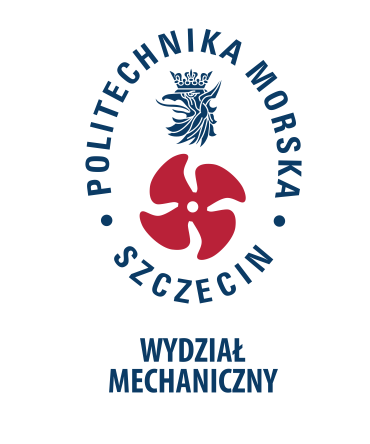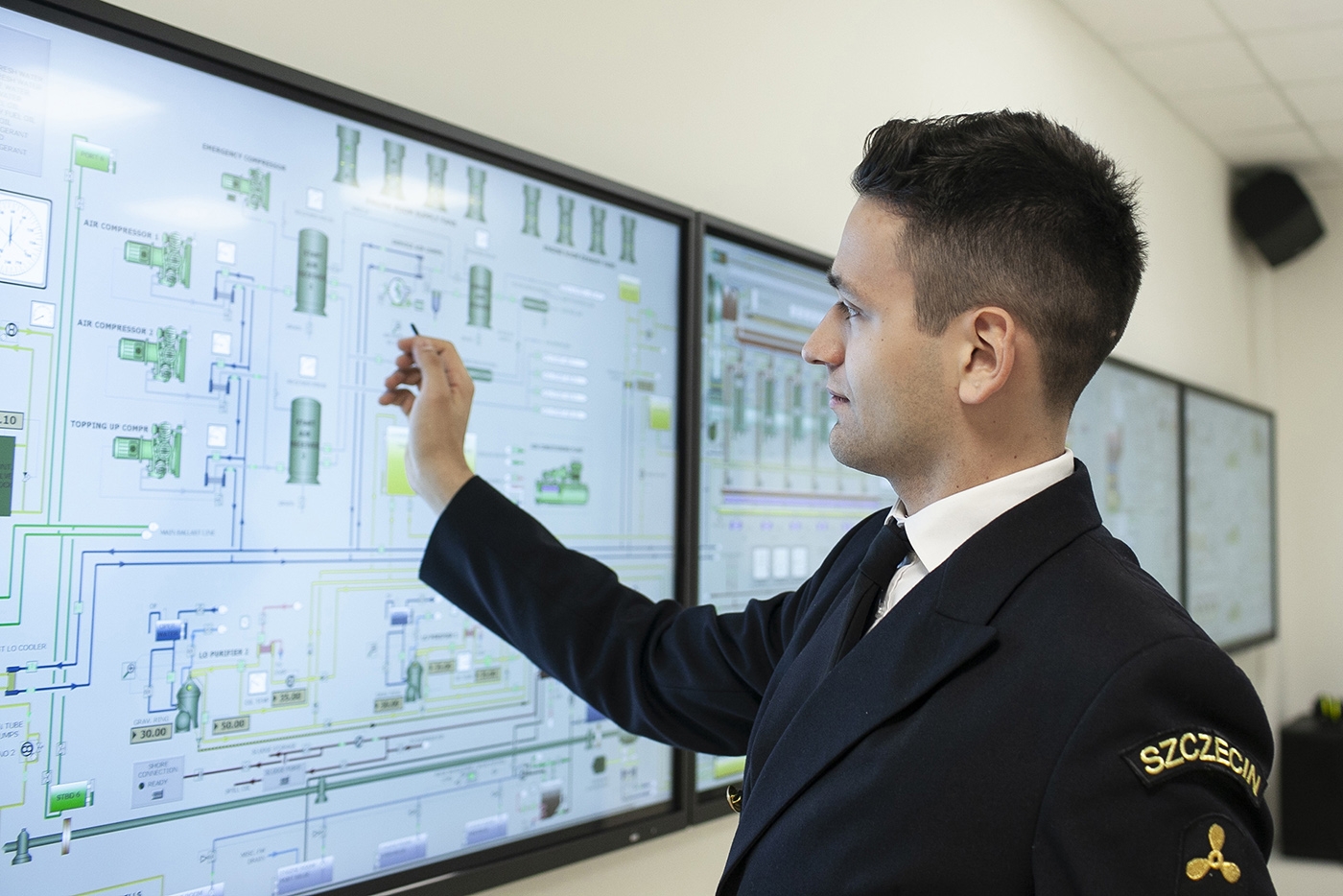Course
Mechanical Engineering

Type of studies: graduate
Language: English
Duration: 3 semesters
Mode of study: Part-time
Degree: Master of Engineering
Timeframe: Enrolment is open 19 May 2025 - 11 Feb. 2026

Enrolment is open from 19 May 2025 until 11 Feb. 2026.
POLISH CITIZENS:
Admissions of Polish candidates are carried out by the University Admissions Committee. Decisions as regards international candidates are taken by the Rector. Candidates with the highest grades in their undergraduate (first-cycle) studies and only those who fulfil the formal requirements are offered admission, subject to the quota.
Formal criteria
In order to be admitted to postgraduate (second-cycle) studies at the Maritime University of Szczecin, candidates are required to have completed their undergraduate studies in the same or a related field of study.
Before enrolling in any degree programme conducted in English, all candidates are required to take an English language test.
Exemptions from the test can be granted to the candidates who:
- speak English as their mother tongue,
- hold the Cambridge First Certificate or an equivalent document,
- graduated from high school or college with English as the language of instruction,
- completed a degree programme with English as the language of instruction,
- completed a degree programme in Poland and received at least B grade on their final exam in English.
Register directly on irk.pm.szczecin.pl
INTERNATIONAL CANDIDATES:
Please check here: Apply step by step, which documents you can use to prove your English language proficiency.
More information for international candidates >> marine-edu.com
To be admitted to a Master's degree course at the Maritime University of Szczecin, students need to complete their Bachelor's or Engineer's degree in Mechanical Engineering or a related field of study.
RESULTS
The University Admissions Committee oversees the enrollment process for courses.
Admission results can be checked on the MUS admissions website >> https://irk.pm.szczecin.pl/
Candidates who have been refused admission through an administrative decision of the Admissions Committee have the right to appeal to the Rector of the Maritime University of Szczecin within 14 days of receiving the decision, through the Admissions Committee (applies to Polish citizens).
Candidates who have been refused admission through an administrative decision of the Admissions Committee have the right to appeal to the Rector of the Maritime University of Szczecin within 14 days of receiving the decision (applies to international candidates).
Description:
During the Mechanical Engineering course, students learn about the issues related to the day-to-day operation, management and diagnosis of equipment typically used in the marine engine room. It gives our graduates a variety of job opportunities, ranging from the typical career path as a ship's crew member to employment in repair and maintenance companies. During the course, the students acquire competence in operation and maintenance of marine power plants.

Students also acquire knowledge in the field of preparing, managing and carrying out overhauls of power equipment, industrial, refrigeration and recycling plants. Students are trained in: the principles of teamwork, standards for the technical services operation, classification societies, shipowners' technical supervision services and other technical inspection bodies. Students also learn to coordinate tasks related to the equipment operation process, acquire skills in supporting design work in simple engineering tasks, selection of materials used for machinery components and supervision of their operation in shipyards or production, maintenance and repair companies.
Why is it worth it?
Regardless of the development of autonomous transport systems, the automation of energy equipment or the implementation of AI-based computer technologies, the necessity to maintain the technical condition of these facilities at an appropriate level will not disappear. In short, someone has to know how to repair this equipment.
The competencies acquired during the studies can be used in various areas of the economy, from the broadly defined maritime economy, through the energy sector to the mining industry, etc. Personal and professional development, changes in the economic climate and other external factors lead to career development and may result in changing the workplace, but the knowledge and skills acquired during your studies will continue to be used and developed.
The MEng. programme provides training at the management level, allowing - after additional training and passing the exam - to obtain the second engineer officer certificate.
Work
On completion of the graduate course, the Master of Engineering degree is granted and graduates are prepared to continue their education at the postgraduate and doctoral level. The success stories of our graduates show, that they are able to perform exceptionally well, not only in areas specific to the maritime economy but also in the field of the energy and mining industry or processing and chemical industry, wherever knowledge and skills in the domain of maintenance, diagnostics and repair of mechanical devices are required.
Polish citizens:
Należy dostarczyć dokumenty również w wersji papierowej, rekrutacja elektroniczna nie zwalnia z tego obowiązku!
Kandydaci, którzy uzyskają status "zakwalifikowanych do przyjęcia na studia" zobowiązani są do złożenia kompletu papierowych dokumentów do końca terminu rekrutacji.
Kandydaci mogą dostarczyć dokumenty rekrutacyjne:
- osobiście do Uczelnianej Komisji Rekrutacyjnej - ul. Willowa 2, pok. 103 (pon. - pt. w godz. 9 - 14) lub
- za pośrednictwem operatora pocztowego lub
- za pośrednictwem firmy kurierskiej
na adres:
Politechnika Morska w Szczecinie
REKRUTACJA
ul. Wały Chrobrego 1-2
70-500 Szczecin
All candidates are expected to submit the following application documents by the admissions deadline:
1. Application form.
2. A copy of the graduation diploma certified by the university (if a diploma has been obtained outside Poland, the candidate must be entitled to continue education on graduate studies in the country where the diploma has been issued). The candidate is obliged to submit the original diploma with an Apostille or validated by the Polish Consul. *
3. Diploma supplement (with a transcript of records and other information on the programme you completed).
4. 2 full-face photographs, 3.5 cm x 4.5 cm (the photographs should be identical, up-to-date, clear, showing a person’s face with no headcover or dark glasses, head in a left half- profile with the whole left ear visible, face evenly lit) photos are also required in digital version (as an attachment during the admission process on the MUS website); If there is a problem with attaching the photo, the MUS Admission Committee will upload it later on.
5. Application fee receipt (PLN 85).
6. ID card (for inspection only).
7. The information clause GDPR.
Candidates who apply for two programmes within the same Faculty, submit only one application form indicating their first and second choice. Only one application fee is required
INTERNATIONAL CANDIDATES
Please check here: Apply step by step which documents you can use to prove your English language proficiency.
More information for international candidates >> marine-edu.com
Candidates are required to apply via the University admissions website https://irk.pm.szczecin.pl/Default.aspx
Important: to complete the application candidates for the programmes delivered in the English language may submit all their application documents in digital form only. However, on arrival to Poland, it is mandatory for them to complete enrolment i.e. submit all application documents in paper versions.
* Only persons who hold an undergraduate diploma (According to Article 326 of the Higher Education Act dated 20.07.2018, Poland) may apply for admission to the Maritime University of Szczecin
Pliki do pobrania
| Admission application form |
| Personal information form MUS - PDF |
| Information clause GDPR RODO ENG |
Application fee: PLN 85.
Payment can be made at the University cash desk or directly to the Maritime University of Szczecin account:Bank Pekao S.A. 91 1240 3927 1111 0011 0575 2658
IBAN PL 91 1240 3927 1111 0011 0575 2658
SWIFT: PKOPPLPW
Tuition fees in English:
- Polish citizens – PLN 8,700 / year.
- Foreigners mentioned in article 324, paragraph 2 of the Polish Higher Education Act (EU citizens, Polish Card holders (pol. Karta Polaka), Permanent Residence Permit holders, the decision of a Polish consul certifying Polish origin, refugees, temporary protection, Temporary Residence Card holders - family reunification, holders of PKPZJPjO certificate on the level min. C1, spouse, child or parent of a Polish citizen living in Poland) – PLN 8,700 / year.
- Foreigners from outside the European Union – PLN 13 000 / year.
The candidate applying for two courses (primary and alternative) within one Faculty is charged only one admission fee of PLN 85.
Maritime University of Szczecin - Politechnika Morska w Szczecinie
ul. Wały Chrobrego 1-2, room 101
70-500 Szczecin, Poland
Check out our admission website for international candidates
tel. +48 91 48 09 965 (English, German)
tel. +48 91 48 09 345 (English, Spanish)
tel. +48 91 48 09 817 (Russian)
10.00 till 14.00 CET
tel. + WhatsApp: +48 601 329 781
fax: +48 91 48 09 831
email: international@pm.szczecin.pl
Polish-speaking candidates, please contact:
e-mail: dm@pm.szczecin.pl
rekrutacja@pm.szczecin.pl
tel. kom.: +48 665 370 490